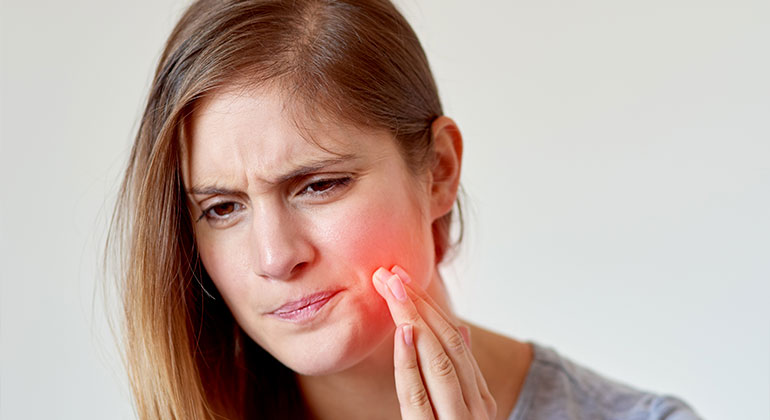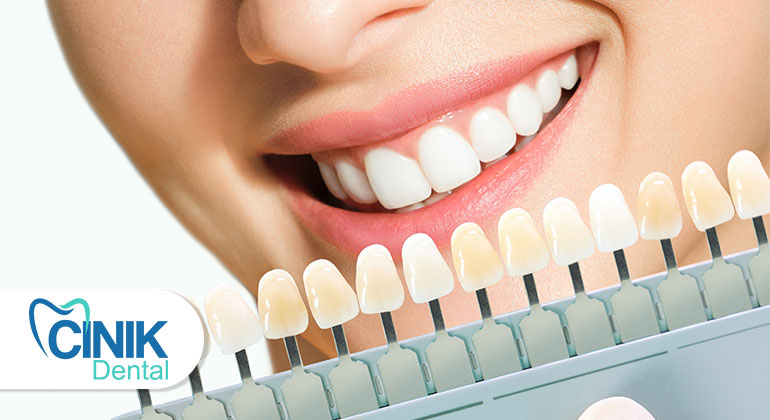What is Toothache? How Does It Heal?

What is Toothache? How Does It Heal?
Toothache is a common tooth problem that almost everyone has to deal with at some point. But what is toothache exactly? It is a pain in or around a tooth that may be caused by various factors such as tooth decay, a damaged filling, a tooth fracture, or infected gums. Understanding the root cause is crucial in determining how to eliminate toothache effectively.

How Toothache Goes What Are The Treatment Methods?
Toothache can be mild or severe, intermittent or constant, but regardless of its nature, it’s a sign that something is wrong. The first step in treating a toothache is to visit a dental professional, like Cinik Dental, who can diagnose the cause of the pain. Treatment methods can range from fillings, crowns and root canals to extractions, depending on the severity and cause of the toothache.

What Is Good For Toothache?
While Cinik Dental treatment is the most effective way to treat a toothache, you can briefly ease the pain with a few things you can do at home. Pain medicines and anti-inflammatories that you can buy over the counter can help for a short time. Rinsing your mouth with warm salt water can also help soothe a toothache.

Natural Remedies for Toothache
In addition to prescription medications, there are a variety of all-natural toothache remedies. For instance, clove oil has been used for centuries to relieve toothaches since it eliminates discomfort. Similarly, a cold compress applied to the affected area can help reduce swelling and numb the pain. Again, these remedies should not replace a visit to the dentist if the toothache continues.

What Are the Types of Toothache?
Toothache can manifest in several ways, and the type of pain can often indicate its cause. Sharp pain when biting down might suggest a cracked tooth or a cavity, while a constant throbbing pain might indicate an abscess or infection. Sensitivity to heat and cold could signify tooth decay or gum recession. Understanding the type of toothache can help in seeking the proper treatment.
What Causes Toothache?
The most common toothache causes include tooth decay, dental abscess, gum disease, sensitive teeth, sinusitis, or even problems with your jaw, like TMJ disorders. If you don’t practise good dental hygiene, overeat sweets, or smoke, these circumstances are more likely to happen. Regular check-ups with a dental professional like Cinik Dental can help prevent these issues and keep your teeth healthy.
Prevention of Toothache
Protection is always better than treatment, and toothaches are no exception. Maintaining good oral hygiene by brushing twice daily, flossing daily, and regular dental check-ups are crucial. A healthy, low-sugar diet may help prevent tooth decay, one of the primary causes of toothaches.
How Long Will a Toothache Last?
The duration of a toothache can vary depending on several factors, including the underlying toothache causes and individual circumstances. A toothache generally lasts from a few hours to several days or even longer. Minor toothaches caused by temporary sensitivity or mild irritation may subside within a few days as the affected area heals.
The pain, however, is likely to persist until the appropriate therapy is applied if the toothache is brought on by anything more severe, such as a hole, an infection, or damage to the tooth. Getting expert dental treatment for chronic tooth pain is essential to address the underlying cause and reduce suffering.

Can Tooth Pain Go Away by Itself?
Tooth pain can sometimes alleviate independently, but it largely depends on the toothache causes. If the toothache is caused by temporary sensitivity to hot or cold stimuli, it may go away as the tooth enamel remineralizes or the nerve endings recover.
Similarly, if the pain results from a minor gum irritation or a mild toothache from recent dental work, it might resolve independently with time. However, it’s important to note that tooth pain often indicates an underlying dental problem, such as tooth decay, infection, or gum disease.
These conditions typically require professional treatment to resolve the pain and prevent further complications. Ignoring dental issues can lead to worsening pain and potential damage to the affected tooth. So, seeing a dentist for a good analysis and treatment is best to ensure your teeth stay healthy and pain-free in the long run.
When to See a Dentist
If your toothache lasts over a few days, it’s time to see a dentist. Other signs that you need professional help include severe pain, fever, difficulty swallowing or breathing, swelling around the tooth, or pain when you bite. Remember, the sooner you get treatment, the better your chances of saving your tooth and preventing complications.
Conclusion
In conclusion, toothache is a common but treatable condition. Whether you choose over-the-counter solutions, natural remedies, or professional treatment from clinics like Cinik Dental, it’s important to address the issue promptly. Remember, understanding how to get rid of toothache starts with understanding its cause. Regular dental check-ups and good oral hygiene can go a long way in preventing toothache and ensuring a healthy smile.

FAQs
Can stress cause a toothache?
Yes, stress can indirectly lead to toothache. It may cause you to grind your teeth when you sleep or throughout the day, which may cause sensitivity and discomfort in your teeth.
Is it safe to exercise if I have a toothache?
While exercise is generally good for your health, the increased blood flow from vigorous exercise could intensify the pain if you have a severe toothache. It’s best to get your toothache treated before resuming intense physical activity.
Can a toothache cause a headache?
Yes, a toothache can cause a headache. This is so because the jaw and skull nerves are interconnected. If you have a severe toothache, it can trigger a headache.
How can I sleep comfortably with a toothache?
Try elevating your head with extra pillows to alleviate some of the pressure in the toothache area. Also, avoid eating or drinking anything that could exacerbate the pain right before bed.
Can toothache cause ear pain?
Yes, a toothache can cause ear pain. The nerves that serve the teeth and the ears are closely linked, so pain can often be referred from a problematic tooth to the ear, causing what feels like an earache.




